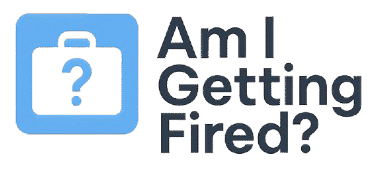Signs of Burn Out at Work
Do you feel like your energy is gone, your job is dragging you down, and nothing seems to help? You might be experiencing burn out at work — and if you don’t catch it early, it can silently harm your reputation and job security.
This checklist-style guide outlines the clearest signs of burn out at work, how it can impact your career, and how to use our free AI tool to find out if you’re already on your employer’s radar.
Burn Out Symptoms You Shouldn’t Ignore
- ☑️ You feel drained before the day even starts
- ☑️ You’ve stopped caring about things that used to matter at work
- ☑️ Simple tasks feel overwhelming or pointless
- ☑️ You avoid emails, meetings, or messages
- ☑️ You’re forgetting things more often or missing deadlines
- ☑️ You’ve become more irritable, negative, or withdrawn
- ☑️ Praise doesn’t motivate you — nothing does
- ☑️ You’ve considered quitting without a plan
If you checked more than three of these, burn out may already be affecting how your boss sees you.
Check your firing risk with our free AI scan →
What Burn Out Looks Like From the Outside
Even if you think you’re “pushing through,” others may see something different. Here’s how burn out can be misread:
- ✔️ You seem disinterested in meetings or decisions
- ✔️ You’ve stopped volunteering ideas or taking initiative
- ✔️ Your output has declined — fewer reports, responses, or results
- ✔️ You’ve been quiet in team chats or skipped meetings
- ✔️ You’re getting vague feedback or more frequent check-ins
These aren’t just signs of stress — they’re early signs of job risk.
Click here to scan your firing risk with our AI tool now
Why Burn Out Can Lead to Termination
Burn out affects your behavior, performance, and communication — and employers notice. If they think you’ve lost interest, given up, or checked out, they may start considering your role “not essential.”
Tip: In a down economy or restructuring phase, burnout symptoms make you a target for layoffs or quiet dismissals.
What You Can Do Right Now
- Start logging symptoms: Track what’s changed in your mood, energy, and output.
- Set a short-term plan: Focus only on your top 3 priorities each day to conserve mental energy.
- Reach out (carefully): Consider a conversation with a trusted manager or HR rep if safe to do so.
- Run your AI scan: Use our tool to see if your burnout is triggering firing risk signals.
Summary
You can’t fake being fine forever. Burn out shows — and the earlier you acknowledge it, the faster you can fix it. Use this checklist to spot the signs, and take action before your job is quietly reassigned or removed.
Use Our Free AI Tool to Scan for Firing Risk
If you’ve checked several symptoms above, your job could already be at risk. Use our free tool to get a fast, anonymous score based on burnout indicators and workplace behavior.
Scan now — it takes less than 60 seconds
Internal Links
FAQ: Signs of Burn Out at Work
Is burnout the same as being lazy or disengaged?
No. Burnout is often caused by working too hard for too long with too little support. It may look like disengagement, but the cause is deeper.
How do I tell if burnout is affecting my job?
If you’re missing deadlines, avoiding communication, or no longer motivated, it may be spilling into how others see you — and triggering job risk.
What if I don’t have the option to take time off?
You can still take steps: set boundaries, communicate clearly, and use our tool to assess your current job security so you can act strategically.
Will employers understand if I admit I’m burnt out?
Some will, others won’t. That’s why it’s important to assess the risk privately and prepare a smart plan — before you open up.
Is burnout a fireable offense?
Technically, no — but if it affects your performance or attitude, your employer might still see it as a reason to replace you.
